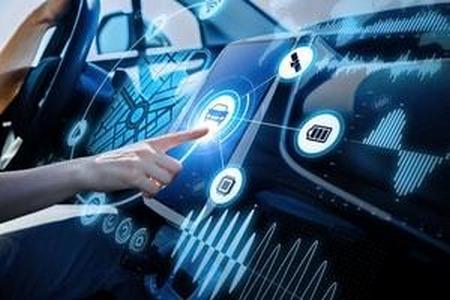Do Automated Features Reduce Car Accidents?
 Automated vehicle technologies are designed to reduce serious and fatal car accidents, but do they actually work? We are not referring here to fully automated vehicles, but rather to technologies that already are in a high percentage of cars on the road, such as adaptive cruise control or a lane-departure warning system.
Automated vehicle technologies are designed to reduce serious and fatal car accidents, but do they actually work? We are not referring here to fully automated vehicles, but rather to technologies that already are in a high percentage of cars on the road, such as adaptive cruise control or a lane-departure warning system.
According to a recent article in The Drive, automation that removes human error from driving could one day help decrease accidents that killed more than 40,000 Americans last year. However, that statement assumes that drivers in DuPage County and throughout the country not only are willing to use automated technology, but that they also understand how it works and are using it properly.
Otherwise, according to a study conducted by the Insurance Institute for Highway Safety (IIHS), automated technology could end up having no impact at all on the rate of motor vehicle collisions. What do you need to know about the benefits and limitations of automated vehicle technology?
Automated Technology Works, But There Are Limitations
Generally speaking, automated technology on its own works well, according to David Kidd, a senior research scientist with IIHS. However, as Kidd clarified, there are also many limitations. What are those limitations? First, and perhaps most significantly, many drivers either are not yet convinced that automated technology can keep them safer on the road, or they have the technology in their vehicles but are not using it properly.
Through the IIHS, Kidd conducted a study in which he analyzed 51 different employees’ reactions to automated vehicle technology who work for the IIHS and the Highway Data Loss Institute (HDLI). Specifically, he explored their responses to adaptive cruise control as it exists in five different vehicle models:
- 2017 Audi A4;
- 2017 Audi Q7;
- 2016 Honda Civic;
- 2016 Infiniti QX60; and
- 2016 Prius.
Adaptive cruise control is an automated technology that maintains a set speed and a set following distance from the vehicle in front of it. In addition to adaptive cruise control, the Audi A4, Audi Q7, and the Honda Civic also had the feature of active lane keeping, which is another type of automated technology that offers sustained steering input to keep the vehicle within its lane.
Findings from the Study
What did Kidd determine? In large part, consumers are not yet ready for all automated technologies in all vehicles. Some of the employees indicated that they viewed the adaptive cruise control in the Audi models more positively than the active lane keeping, but many said the opposite was true in the Honda Civic. As such, the study made clear that there is still a lot of variability in the way automated technology works in different vehicles, and many consumers may opt to avoid it altogether.
While it does not seem as though automated technology will be preventing motor vehicle crashes on a large scale anytime soon, consumers should still consider the benefits of the technology in helping to reduce the rate of car accidents.
Contact a Lombard Auto Accident Lawyer
Car accidents often happen because of another driver’s carelessness. If you got hurt in a crash, you should discuss your case with a DuPage County auto accident lawyer as soon as possible. Contact Mevorah & Giglio Law Offices today.
 English,
English,
 Spanish,
Spanish,
 Polish,
Polish,
 Urdu
Urdu












 Make a Payment
Make a Payment



